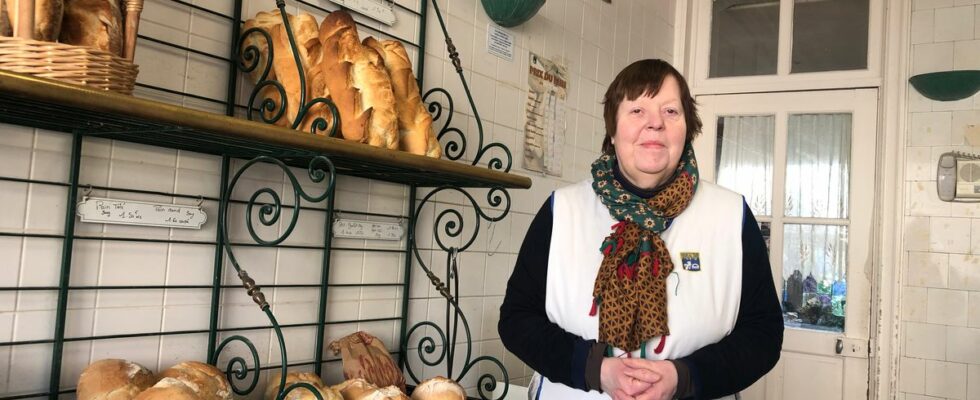In his bakery, he can no longer unfold. At 65, Jean-Michel Mocquant carries, on his back, the weight of a life of hard work and walking bent over. For forty-one years he has run a bakery and pastry shop in Vis-en-Artois, a small village in Pas-de-Calais, located on a secondary road between Arras and Cambrai, with his wife Maryse. Today, both are at their wit’s end. And health got the better of their passion for work.
“We have been bakers for five generations,” says Jean-Michel Mocquant. Without these health problems, we would have continued. The line will die out for lack of candidates in the family. Because the couple has made its decision. In a few weeks, they will close down and enjoy their retirement. “In forty-one years, we have taken, in all and for all, only nine weeks of leave,” he notes.
Sale of the complicated store
“Every day, Jean-Michel gets up at 2:30 a.m. to prepare the bread, and I at 5:30 a.m. to organize the store and the rounds in the surrounding villages,” says Maryse Mocquant. For four or five years they have been considering selling their business to move on. “Our children strongly encourage us to stop,” admits Maryse, who also bears the signs of fatigue on her face.
But the decision was hard to make. Small retirement, nostalgia and real estate bickering complicated the situation. “We didn’t want to leave the village without a bakery, but selling the store is very complicated. We had a potential buyer last year. He never came to sign the deed of sale, ”laments the sixty-year-old. The case is in the hands of the courts.
“I started working at 14”
The reality is that the couple remains strongly attached to their profession. “It was Jean-Michel’s grandmother who introduced me to business. Until the age of 75, she ran a bookshop-grocery store in Arras which I frequented when I was in high school,” she recalls. The apprehension is great. “I admit to being a little afraid of the void it will create in my life. We are constantly in contact with people. Won’t I miss it? she wonders. For her husband, the priority will be to have the operation. He suffers in particular from osteoarthritis in his knees and the permanently bent position has broken his back. “I was too big for standardized machines,” he says. And then, it’s a physical job, always in the humidity and the heat. My father had to stop because of a flour allergy when the bread was still kneaded by hand. »
Nevertheless, he feels no regrets. “If it was like before, I could have retired at 57, because I started working at 14, but I did it out of passion, continues Jean-Michel. I fell into it when I was little, even though my parents didn’t want me to do this job. »
The reform project? He saw it with fatalism. “There aren’t enough people working to pay retirees, so… But young people should also be put to work. Otherwise, we can’t get out of it”, he slips, satisfied to have been able to resist competition from a supermarket for so many years, “while keeping the staff that we did not want to lay off”. . If the aftermath is already in their heads, one last concern worries the couple: the electricity bill, the blockage of which ends at the end of March. This additional argument makes them say that they have finally made the right choice by wanting to “take advantage of grandchildren and friends”.
At 83, a shopkeeper also lowers the curtain
In Riencourt-lès-Cagnicourt, a few kilometers from Vis-en-Artois, another historic store will close in the coming weeks. At 83, Marie-José Milhomme has decided to lower the curtain after 46 years of managing her small grocery store and tobacconist. “The pension fund asks me for nearly 5,000 euros a year, she explains to 20 minutes. For a small business like mine, this is no longer possible. »
She therefore decided to enjoy a well-deserved rest, putting an end to three generations of grocers in this village of almost 300 inhabitants. Since the death of his sister three years ago, motivation has declined. “For both of us, life was business. We carried each other.” They had taken over the family store when the supermarkets arrived. They were able to resist for nearly half a century.

